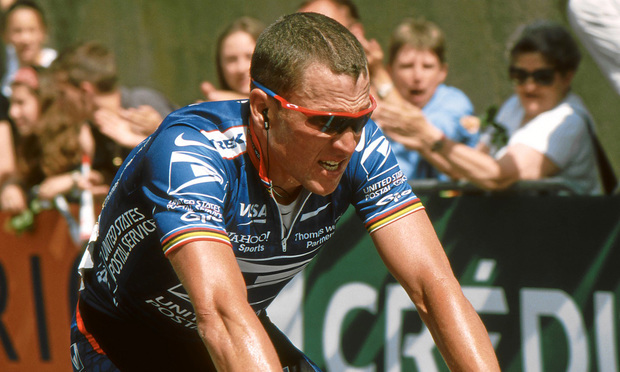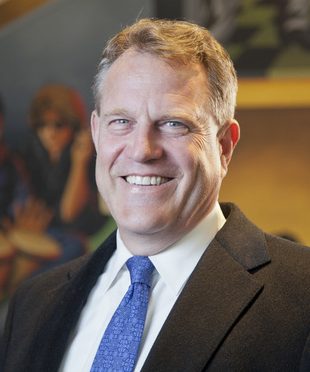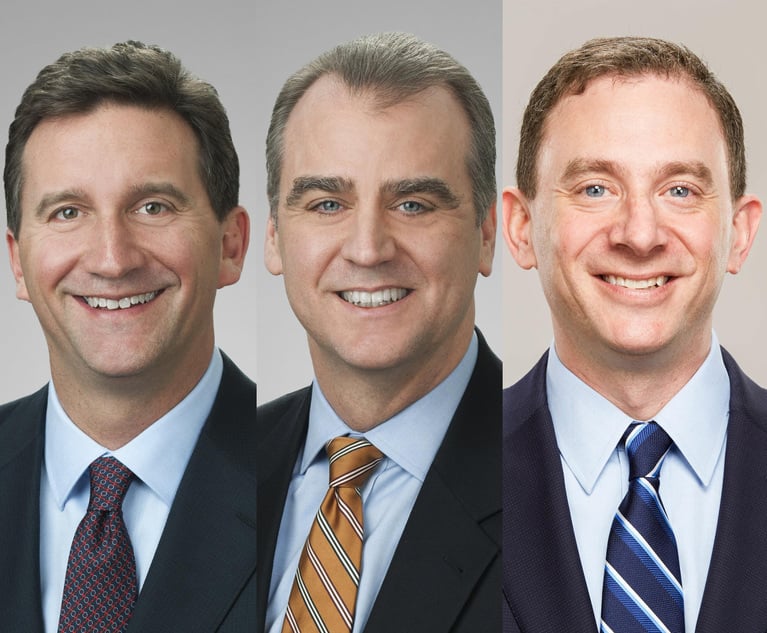Q&A: Lance Armstrong's Lawyer Talks Shop About Settling with US Postal Service
Elliot Peters of Keker, Van Nest & Peters says "100 percent" of him wished he could take the doping case to trial, but that the $5 million settlement Armstrong reached "puts litigation out of his life."
April 19, 2018 at 06:45 PM
5 minute read
The original version of this story was published on The Recorder
 Lance Armstrong finishing third in Sète, taking over the yellow jersey at the 2002 Grand Prix Midi Libre on May 25, 2002. (Credit: Wikimedia Commons.)
Lance Armstrong finishing third in Sète, taking over the yellow jersey at the 2002 Grand Prix Midi Libre on May 25, 2002. (Credit: Wikimedia Commons.) Former pro cyclist Lance Armstrong announced Thursday he reached a $5 million settlement in the long-running False Claims Act case that former teammate Floyd Landis initiated in 2013 alleging Armstrong fraudulently misled their team sponsor, the U.S. Postal Service, about his use of performance-enhancing drugs.
The settlement comes as federal prosecutors who had taken up Landis' case and Armstrong's lawyers at Keker, Van Nest & Peters were approaching a May 7 trial date. Armstrong faced up to $100 million in potential liability at trial. In the wake of Thursday's announcement, Armstrong's lead lawyer, Keker Van Nest name partner Elliot Peters, spoke with The Recorder about the deal and some of the things he was looking forward to had the case gone to trial.
 Elliot Peters. (Photo: Jason Doiy/ALM)
Elliot Peters. (Photo: Jason Doiy/ALM) The Recorder: Why was this settlement the right move for Lance Armstrong?
Elliot Peters: Because he took a case where his exposure was $100 million and settled it for $5 million and put litigation out of his life. He can now move on with his life and enjoy it rather than continue to be a litigant with this big exposure potentially out there hanging over his head.
And also since 2013, Lance has tried hard to make amends with everybody including the Postal Service, and he's happy to do that.
Is there part of you that wishes would have gotten to take this case to trial?
100 percent.
Was there any particular aspect of the trial you were looking forward to?
I think the case was basically hypocritical. The Postal Service benefited hugely from sponsoring the cycling team, particularly because it had Lance Armstrong on it.
Lance rode his heart out for the Postal Service team. He won seven straight Tour de Frances against a field of people, all of whom were doing exactly what he was doing. You'll never hear, and you've never heard, another cyclist who raced against Lance saying, 'He beat me by cheating.' They all say, 'He beat me. He was the best rider.'
So I thought the case was hypocritical.
But I was also looking forward to questioning some of the witnesses because the extent of doping in cycling—how obvious it was to the people who regulated the sport and the sponsors of the sport—it was so apparent that for all these people to turn around and point the finger at Lance after the fact was just incredibly hypocritical and I would have loved to have had the opportunity in a federal courtroom in Washington to have exposed that.
Any witness in particular?
My favorite witness in the case was always Tyler Hamilton, who was a guy who rode with Lance's U.S. Postal Service team, [and] he rode against Lance. He always wanted to beat Lance. When he left Lance's team, he rode for this other team.
He did transfusions, he did EPO [or blood doping]. He testified that he took way more PEDs for other teams than he ever had when he was on the Postal Service team. He was an interesting snapshot of some of the hypocrisy in the sport.
Another great witness was Floyd Landis, the relator. He's the guy who brought the lawsuit. Floyd Landis got busted for doping in the Tour de France, put on this big defense based on lying like crazy, got prosecuted for lying to people to fund his defense, and then became the so-called whistleblower who brought this suit against Lance. I mean, talk about hypocrisy.
How much of your time and the firm's time has this case taken?
I started representing Lance in 2011. So I've been representing him for seven years and it's taken a lot of our time and a lot of our energy. He's become a friend and an adopted family member of our firm and we really care about him, and we really cared about our case. Not to say doping in sports is good or lying about is good. None of that.
He's a remarkable person, an amazing athlete, a really good man, a likable person and I'm just proud that we were able to represent him and ultimately get him to the other side of this difficult situation that he was in.
What are you personally going to do now that you're not going to trial in May?
I have lots of other interesting cases to do. I'm in the middle of a mediation right now over at JAMS and, if this case doesn't settle, I'll be working on it. We have lots of things to do, so I won't be sitting around twiddling my thumbs. Unfortunately.
This content has been archived. It is available through our partners, LexisNexis® and Bloomberg Law.
To view this content, please continue to their sites.
Not a Lexis Subscriber?
Subscribe Now
Not a Bloomberg Law Subscriber?
Subscribe Now
NOT FOR REPRINT
© 2025 ALM Global, LLC, All Rights Reserved. Request academic re-use from www.copyright.com. All other uses, submit a request to [email protected]. For more information visit Asset & Logo Licensing.
You Might Like
View All
Litigators of the Week: Shortly After Name Partner Kathleen Sullivan’s Retirement, Quinn Emanuel Scores Appellate Win for Vimeo

Litigators of the Week: A Knockout Blow to Latest FCC Net Neutrality Rules After ‘Loper Bright’

Litigators of the (Past) Week: Defending Against a $290M Claim and Scoring a $116M Win in Drug Patent Fight

Litigation Leaders: Jason Leckerman of Ballard Spahr on Growing the Department by a Third Via Merger with Lane Powell
Trending Stories
Who Got The Work
J. Brugh Lower of Gibbons has entered an appearance for industrial equipment supplier Devco Corporation in a pending trademark infringement lawsuit. The suit, accusing the defendant of selling knock-off Graco products, was filed Dec. 18 in New Jersey District Court by Rivkin Radler on behalf of Graco Inc. and Graco Minnesota. The case, assigned to U.S. District Judge Zahid N. Quraishi, is 3:24-cv-11294, Graco Inc. et al v. Devco Corporation.
Who Got The Work
Rebecca Maller-Stein and Kent A. Yalowitz of Arnold & Porter Kaye Scholer have entered their appearances for Hanaco Venture Capital and its executives, Lior Prosor and David Frankel, in a pending securities lawsuit. The action, filed on Dec. 24 in New York Southern District Court by Zell, Aron & Co. on behalf of Goldeneye Advisors, accuses the defendants of negligently and fraudulently managing the plaintiff's $1 million investment. The case, assigned to U.S. District Judge Vernon S. Broderick, is 1:24-cv-09918, Goldeneye Advisors, LLC v. Hanaco Venture Capital, Ltd. et al.
Who Got The Work
Attorneys from A&O Shearman has stepped in as defense counsel for Toronto-Dominion Bank and other defendants in a pending securities class action. The suit, filed Dec. 11 in New York Southern District Court by Bleichmar Fonti & Auld, accuses the defendants of concealing the bank's 'pervasive' deficiencies in regards to its compliance with the Bank Secrecy Act and the quality of its anti-money laundering controls. The case, assigned to U.S. District Judge Arun Subramanian, is 1:24-cv-09445, Gonzalez v. The Toronto-Dominion Bank et al.
Who Got The Work
Crown Castle International, a Pennsylvania company providing shared communications infrastructure, has turned to Luke D. Wolf of Gordon Rees Scully Mansukhani to fend off a pending breach-of-contract lawsuit. The court action, filed Nov. 25 in Michigan Eastern District Court by Hooper Hathaway PC on behalf of The Town Residences LLC, accuses Crown Castle of failing to transfer approximately $30,000 in utility payments from T-Mobile in breach of a roof-top lease and assignment agreement. The case, assigned to U.S. District Judge Susan K. Declercq, is 2:24-cv-13131, The Town Residences LLC v. T-Mobile US, Inc. et al.
Who Got The Work
Wilfred P. Coronato and Daniel M. Schwartz of McCarter & English have stepped in as defense counsel to Electrolux Home Products Inc. in a pending product liability lawsuit. The court action, filed Nov. 26 in New York Eastern District Court by Poulos Lopiccolo PC and Nagel Rice LLP on behalf of David Stern, alleges that the defendant's refrigerators’ drawers and shelving repeatedly break and fall apart within months after purchase. The case, assigned to U.S. District Judge Joan M. Azrack, is 2:24-cv-08204, Stern v. Electrolux Home Products, Inc.
Featured Firms
Law Offices of Gary Martin Hays & Associates, P.C.
(470) 294-1674
Law Offices of Mark E. Salomone
(857) 444-6468
Smith & Hassler
(713) 739-1250






